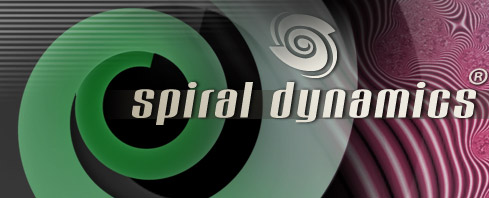 |
 |
|||||||
 |
||||||||
|
Why We Fight, Sharing its title, Why We Fight, with Frank Capra's series of seven propaganda films made between 1942 and 1945 to shape American opinion, Eugene Jarecki's new documentary looks at American militancy over the fifty years since, culminating with Bush's occupation of Iraq. While the film doesn't offer any shocking revelations or analysis for those who have been following American foreign policy and especially the Iraq invasion and its rationales from anywhere besides atop the Bush/Blair bandwagon, it does consolidate a lot of information to which the 'mainstream' population is either oblivious or in deep denial. Thanks to Fox News (a.k.a. the Ministry of Propaganda) and other embedded corporate media outlets who have covered truth with spin so very effectively, the ideas brought to screen by this film will be shocking and awful to far more Americans than ought be, though the majority will likely not notice anything amiss. That's what's genuinely frightening about Why We Fight - there is too much room to question how many citizens will be open and aware enough to grasp it, or even to care. Jarecki finds similarities to the history of the first great global democracy, the Roman Empire, which also found itself incapable of dealing with the complexity of the world it had created through its own success. Like Rome, today's United States is a hegemonic power that has come to find itself with a global tiger by the tail and neither the leadership nor popular confidence to tame it; yet it continues to grow, fueled by the missteps of its self-appointed trainer and other tigers who see an opportunity to leap. Such situations finish off empires and undo democracies as reach exceeds grasp, economically, militarily, and emotionally. Echoing through the film and explored by Eisenhower family members is President Dwight Eisenhower's 1961 admonition in his farewell address to beware "the military-industrial complex," and the creation of an economy dependent on warfare and aggression. The former five-star general saw great danger in allowing the profitability of war to enter the equation of national policy, though both the military industrialists and members of congress have found it irresistible. With contractors and military suppliers dominating the Pentagon which is their 'customer,' Jarecki adds a term which Eisenhower had considered but dropped before delivering the address - ' congressional' - and another which has become especially relevant today - 'think tanks.' From the perspective of this film, the dangerous fusion of power extends beyond the military and its contractors to the politicians who are dependent on them to fund their elections and feed their constituencies, and then to the brain trusts which fuel them with research and policy ideas to coalesce into strategy. Thus, it is the quadrilateral military-industrial-congressional-think tank complex which is driving US policy, not the people. A brain syndicate used as an example in the film is the Project for the New American Century along with two of its principal neurons, the adroit William Kristol and the frightening Richard Pearle, who lay out their 'modest' position of global dominance and ultimate American superiority in the film. Pearle, in particular, gives voice to both the tone and the arrogance of the neoconservative position which has shaped the Bush presidency, making it sound quite reasonable in a Vaderesque way. These plans, built atop a foundation laid under Clinton and extending right back through Bush-the-Elder, extend back to the charmingly aggressive Ronald Reagan who presided while Straussian bargains were being struck by a younger Donald Rumsfeld. It was then that the possibilities for nuclear disarmament proposed by the far-sighted Gorbachev were dismissed in favor of aggressive, preemptive shields designed for a more primitive nature. Today, in cahoots with conservative think tanks and a fifth leg of the arms business, the bomb-making academics in the University of California, the hyper-secretive Bush/Cheney regime is expanding its nuclear arsenal and fostering proliferation for profit, exactly what Eisenhower warned so strongly against while the Cold War was fresh. With clips of interviews with commentators ranging from Gore Vidal to Chalmers Johnson and Sen. John McCain, several characters stand out. Two Air Force stealth pilots speak with incredible ease about going to work like ordinary family men, obedient order-following guys who don't ask questions and just happen to have had the rare opportunity to initiate a war as they delivered the first bombs over Baghdad in shock-and-awe. Their attitude is a frightening study in human nature, as is the picture of a young man who is recruited into the Army out of desperation as his life is nearing collapse and who believes his options have run out; he is an archetype of the raw material that armies have been built from forever. The most poignant comments come from a retired New York police sergeant, Wilton Sekzer, whose son was killed in the 9/11 attacks. A Viet Nam veteran himself, Sekzer discusses his reaction to that terrorist assault - he saw it through a train window in route to work, then endless repeated on TV - and how he wanted vengeance and retribution. Like many other Americans, he believed the administration's lines equating Saddam Hussein with the 9/11 attackers in justifying their war and supported it. He even managed to have his son's name written on a 2000 pound bomb destined to be dropped on Iraq. As more truth has come out, however, he feels betrayed and deceived, realizing that both the pretext for war and the smartness of the bombs were gross deceptions. Both tens of thousands of innocent civilians and trust in government have become collateral damage. Another strong voice is Dr. Karen Kwiatkowski, a recently retired Air Force lieutenant colonel who was attached to the Pentagon and is now a prolific writer. She makes clear why the axiom that truth is the first casualty of war holds up so well. Justifications for the Iraq invasion were either fabricated or distorted to keep the war business on track, to permit the Bush administration to follow its pre-set course against Saddam, and to continue a pattern of aggression and preemption which has become entrenched in US policy since World War II. Perhaps the most damning of all is Kwiatkowski's statement that she would not now let her own sons join the US military which was her career. Why We Fight will not change many minds; it lacks a hook and the humor of a Michael Moore production or the tragedic aspects of Errol Morris' Fog of War in which Robert McNamara quasi-confesses his Viet Nam sins. Those who have opposed Bush's war and believe America is on the wrong course knew most of this already, though visualizing the ideas reinforces them and seeing a KBR rep shilling military contracts with card tricks at a warriors' convention is a memorable moment. Misdirection has become the norm as health, education, and social services are diverted to weapons systems. Still, those who unquestioningly support their commander-in-chief and believe obedience to authority is the paramount obligation of a citizen will find it little more than lofty lefty propaganda. The subset of those who share that fearful world perspective and are convinced that a good offense is the best defense, and that preemptive warfare is not only justifiable but essential to survival of their kind, will write off Why We Fight as just another attack from the enemies on the left who 'just don't get it.' In our view, of course, they do get it far better than the neocons and their dominionist war profiteer backers, a bipartisan cabal presently led by Republicans (petro-politics, religious zealotry, and debt financing hopelessly mortgaging the future), but not exclusive to them by any means. The question ahead is how many voting Americans in these extremely polarized times have the cognitive complexity and courage to sort it out rather than simply going along with a herd - either the dominant faction that laments its own persecution while exercising oppressive power, or the other herd which can find virtually nothing about the Bush approach defensible, yet cannot coalesce a viable alternative to it. Our fear is that most heartlanders will continue wallowing in their personal Big Brother's distortions in this, the Age of the Ostrich. Protracted saturation bombing of the public consciousness with half truths makes the whole truth hard to fathom, and ultimately destroys the credibility and trust necessary for democracy by spinning them to death. The culture of fear tended so carefully by the Bush/Cheney administration has had its desired effects: better to keep faith in scoundrels than risk thinking for one's self, or lift head from sand to sniff the air of nationalistic moral superiority only to find it scented with the blood of innocents. Lies, and lies about lies, ultimately make constitutional democracy impossible. With more thought pieces like Jarecki's, perhaps the American people will take back their rights and turn the tide from rationalized oppression and imposition of national will to genuine expression of liberty. The 2006 and 2008 elections will measure the worth and values of the nation; they can be points of upturn or continued deterioration toward petro-theocracy. It is still possible to undo some of the Clinton/Bush/Blair era mistakes and change the course Dick Cheney has steered, though the process will be long and hard. Whether the people will it or not is the semicentenary test of America's character as these children and grandchildren of what Brokaw called 'The Greatest Generation' choose between decency and disgrace, and whether to strive to restore the nation's honor in support of justice or continue down the path of self-righteous, smirking, unilateralist, geopolitical bully the Bush/Cheney administration has repaved so well. With a singular focus on the future and disregard for lessons of the past, we do well to listen to historian Howard Zinn:
|
About SD | SD in Action | About NVC Consulting | Training | Resources | FAQs | Newsletter